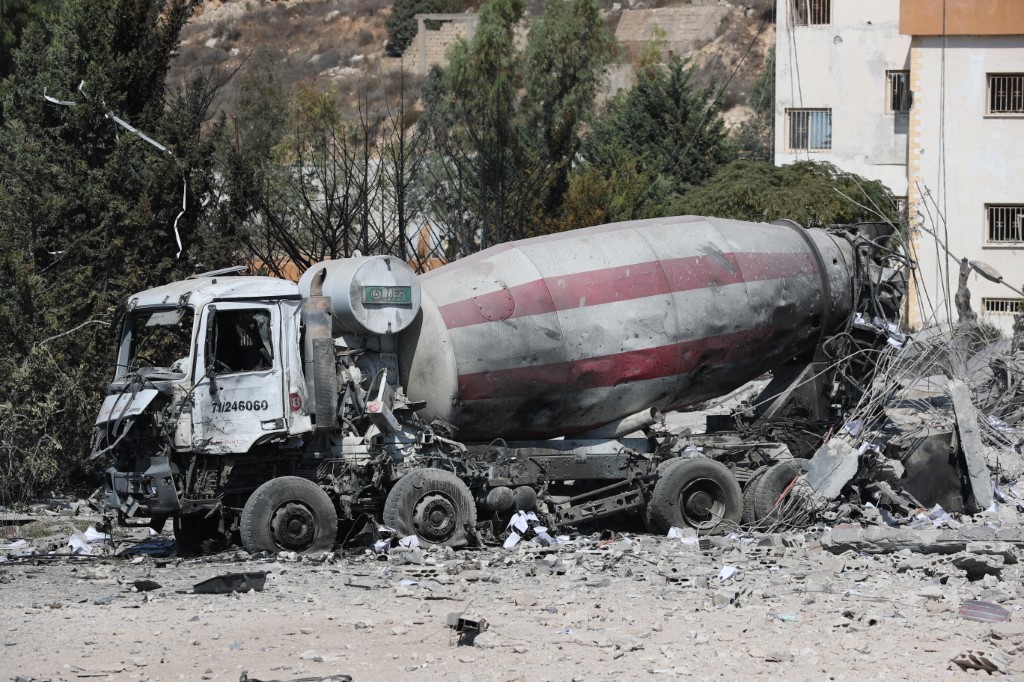"Hezbollah" was quick to seize upon President Joseph Aoun’s request to Army Commander General Rudolph Haykal to confront any Israeli incursion following the Blida massacre. The party went so far as to frame this stance as a call to rely on force (resistance), rather than diplomacy in dealing with Israel, or at best, to permit both simultaneously. It did not attempt to hide its interpretation of the presidential decision as an acknowledgment of the importance of keeping its weapons and reviving the worn-out triad of “People, Army, Resistance.” This came at the expense of the cabinet’s famous August 5 resolution to restrict arms to the state and in defiance of the Arab, Islamic, and international consensus to dismantle armed militias through the implementation of UN Resolution 1701 and the ceasefire provisions.
This blatant opportunism by "Hezbollah", backed by flattery and praise toward the presidency, prompted the latter to take a firm position affirming that negotiations are Lebanon’s only viable path to a settlement. It became clear that the language of diplomacy has prevailed over that of war, which led to no results. This was an explicit rebuke of "Hezbollah’s" political exploitation, reflected in the discontent voiced by the resistance’s media outlets, beginning with Al-Manar TV, which lashed out at Baabda’s statement declaring that negotiations are the sole option and that war has produced no results.
It is obvious that "Hezbollah" exaggerated the interpretation of the president’s request to the army to repel any Israeli incursion, for this task is a natural and inherent duty of the military, to confront any aggression from any side. The army has bravely fulfilled this mission on several occasions, most notably during the famous Adaisseh incident. Being the supreme commander of the armed forces, which operate under the authority of the Council of Ministers, the president is fully entitled to issue directives and instructions to the military. Hence, the celebratory tone surrounding his decision was neither innocent nor normal, as if he had performed some unprecedented, historic act.
Yet the right to self-defense is one thing; engaging in or provoking war, as in the so-called war of support, is something else. Turning the army’s weapons into a complement of "Hezbollah’s" arsenal is a third facet, while reviving the old trinity is a fourth and impossible one. Fundamentally, and as has been said repeatedly, this trinity has suffered from a structural flaw since its inception, before, during, and after the war of support. The defect lies in the contradictory nature of its components: while the army and the people represent all sects, regions, and denominations, the party draws from a single sect and limited areas. Added to this is the rift in doctrine, objectives, and missions, the army’s loyalty being to Lebanon alone, while the party belongs to a regional axis opposed to the Lebanese interests. How can such contradictions coexist in a unified defensive or military mission?
Moreover, if the army’s role is to confront ground incursions, can "Hezbollah" answer how it would face devastating airstrikes, something it failed to do even at the peak of its power? There is no answer other than admitting its inability to wage war. Hence, the state’s insistence on negotiations with Israel as the only necessary and inevitable course strips "Hezbollah" of the last fig leaf covering its weapons. It leaves the group exposed domestically, regionally, and internationally, awaiting signals from Tehran, whose top priority amid its own crises is to preserve its regime, even at the cost of sacrificing its regional proxies.
As for "Hezbollah’s" bet on reconstructing what its war has destroyed, it defies reality, just like its doomed bet on merging the army with the resistance. Reconstruction is a major external decision linked to the disarmament, while internal attempts such as the “Mseileh” Conference are nothing but superficial balm on a deep wound and an attempt at populist gain during election season. What kind of reconstruction do "Hezbollah", Speaker Berri, (who launched the Mseileh conference for the reconstruction of the South), and others pursue without a realistic political and diplomatic settlement through negotiations? What southern or other Lebanese citizen can feel secure rebuilding or repairing a home while war persists? What guarantees can these reconstruction advocates offer, that what is rebuilt will not be destroyed again after all the bitter past experiences?
Two undeniable truths remain. Negotiations are the sole path to resolving Lebanon’s crisis, with arms monopoly and decision-making reserved to the state. Reconstruction can only occur under the guarantee that conflict and war have ended, and that national sovereignty is secured from south to east to north.
"Hezbollah" may have begun to grasp these two truths following an Iranian piece of advice. The first sign of this realization appeared when Speaker Berri conceded to the inclusion of civilian political figures in the negotiation sessions with Israel, perhaps later paving the way to remove the two obstructing conditions of “indirect talks” and “being the last to sign”. After all, didn’t the phrase “State of Israel” appear several times in the maritime border demarcation agreement, which bore the clear fingerprints of both Berri and "Hezbollah"?
Please post your comments on:
[email protected]
 Politics
Politics







